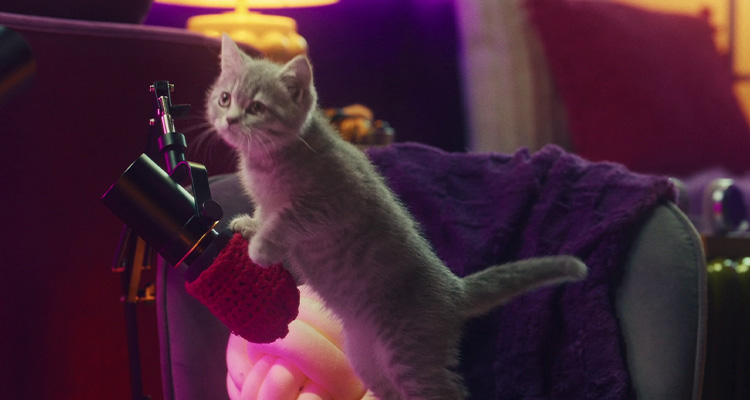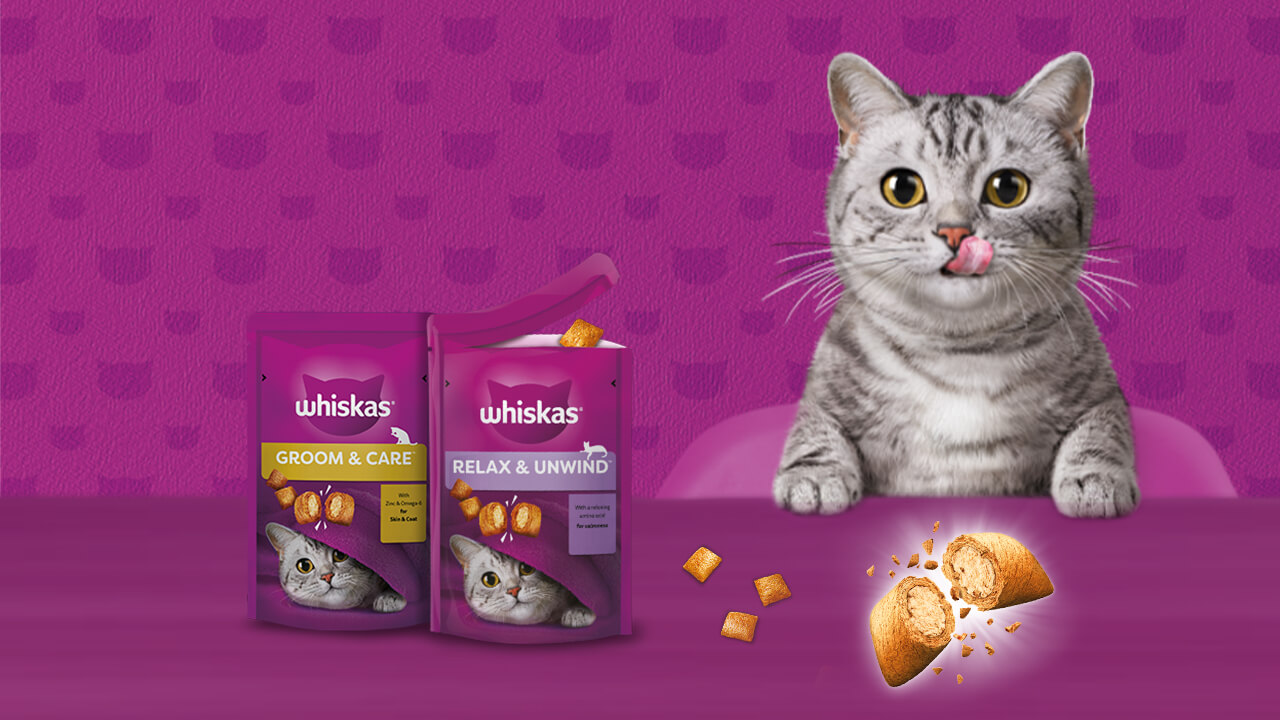
Zoomies at 3am? Biting your toes? Leaping into invisible portals? In this wonderfully chaotic episode of the Whiskas® Purrcast, Caspurr and Agnes try to make sense of kitten behaviour—or at least, pretend to.
Agnes is in full kitten-mode, pouncing on everything in sight and knocking over the odd ornament (or three). Caspurr, ever the voice of reason, breaks down the meaning behind all that bizarre kitten behaviour—from sudden sprints and tail-chasing to sofa scratching and sneak attacks on shadows. Yes, even those wild bursts of energy—aka the kitten zoomies.
Turns out, your kitten’s odd antics aren’t so odd after all. They’re learning, exploring, and letting those natural instincts shine. Whether it’s hunting practice or a full-blown case of the kitten zoomies, it all makes perfect sense in the feline world.
This episode helps you understand what’s normal, what’s playful, and when it’s time to redirect all that kitten zoomies energy to more toy-friendly outlets (like literally anything other than your favourite plant).
Expect a few laughs, some classic Caspurr commentary, and plenty of real-world advice—because life with a kitten (and their kitten zoomies) is never boring.
Tune in to “What on Earth Is My Kitten Doing?” and discover why your furry little chaos machine is acting exactly as they should—even when the kitten zoomies take over.
If you enjoyed this episode of Purrcast and want to better understand your kitten’s behaviour, check out our full article below.
If there’s one thing that makes your cat special, it’s their independent spirit. But are cats actually more sociable than we think?
Grooming
Independent as they are, cats will sometimes develop relationships with one another. Mutual grooming seems to play a part in this. So if you see your cat grooming the cat from next door, remember it isn’t just about getting clean. They're making friends too – or maybe even making up after a recent fight.
Rubbing
As well as grooming each other, cats also like to rub together their foreheads, cheeks, flanks and sometimes tails. Rubbing is a great way for them to mix their scents and respond to each other’s touch – and some experts think it’s also associated with cat hierarchy. As well as satisfying your cat’s natural instincts, rubbing also gives you the pleasure of seeing your feline friend getting along with their neighbours!
Aggressive behaviour
However good-natured they might be, your cat might sometimes act aggressively. For instance, territorial behaviour might make them try to stop you going into certain parts of the house – they might even try to attack you.
It’s important to remember that this is just part of your cat’s natural behaviour. Perhaps they hasve lots of pent-up energy from being stuck in the house. Perhaps they spotted a bird through the window and got frustrated because they couldn’t chase it. Or perhaps you happened to walk by while they were staring down their prey, and your presence switched them instantly into hunter mode.
It’s easy to relieve the tension associated with aggressive behaviour. Try giving your cat some toys to play with or objects to climb on. You can also play hunting games with your cat – they'll especially love any kind of toy that’s attached to a piece of string!
You’ll find more details in our article on reducing cat aggression.














